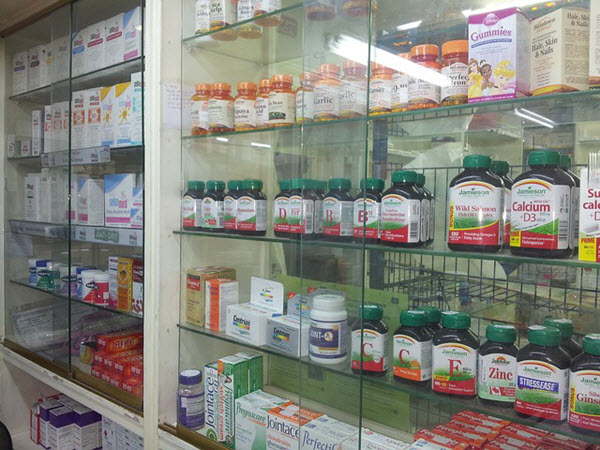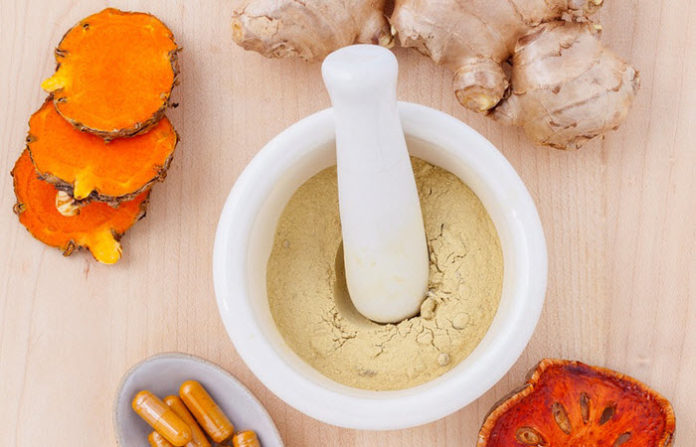The use of herbal supplements has been increasing over the years. According to the American Botanical Council, herbal product sales continue to increase every year. Herbal product sales reached US$7 billion last 2016 which is a 7.7% increase from 2015’s sales. It’s also the 13th consecutive year of sales growth in herbal products.
Is It Important to Know If Your Patient is Taking Herbal Products?
Effects of herbal products in drug therapies are overlooked by doctors from 1960s to 1980s. It changed when herbal products became more popular and widely advertised at the beginning of the new millennium.
Widespread use of herbal products challenged the approach of treatment in healthcare. More studies were conducted on the effects of herbals to drug therapies over the years. As a result, healthcare professionals are becoming more aware of herbals’ effects on certain types of medications. We learned that they produce mild to serious drug interactions when used with certain drugs.
Educating Patients about Herbals

Some patients don’t consult their healthcare provider when taking herbal supplements while on prescription or OTC drugs. Herbal products are treated like vitamins and not as potential drugs.
We should educate patients that informing their healthcare provider about their herbal supplements is important for their safety. Prior use of herbal supplements should be determined before starting a new drug regimen. Patients should also consult their doctors first before taking herbal supplements while on drug therapy.
What are the Most Common Drugs Affected by Herbal Products?
There are drug groups most commonly affected by herbal supplements:
- Anticoagulant and antiplatelet drugs – these drugs act on the clotting ability of the body. Many herbal supplements potentiate the effect of these drugs. It leads to increased risk for bleeding.
- Antidiabetic drugs – oral hypoglycemic agents, or commonly known as antidiabetic drugs, are potentiated by some herbal supplements. It leads to increased risk for hypoglycemia.
- Oral contraceptives – some herbal supplements affect how artificial hormones are metabolized. They can make oral contraceptives less effective.
- Antihypertensive drugs – some herbals potentiate the effects of antihypertensive drugs. It leads to hypotension.
- CNS depressants – CNS depressants like barbiturates and benzodiazepines are potentiated by some herbal products. It may lead to production of stronger sedative effects.
List of Herbal Drug Interactions

It is not mandatory for nurses to memorize herbal drug interactions. But it helps to familiarize yourself so you can be more efficient in assessment and health teaching.
Here is a table of the most common herbals, their use and drug interactions:
| Herbal Product | Used For | Drug Interactions |
|---|---|---|
| Aloe Vera | Fever, inflammation, inflammatory pain, pruritus, osteoarthritis, depression, constipation and Inflammatory Bowel Disease (IBD). | It can potentiate oral hypoglycemic agents and lower blood glucose levels. |
| Bilberry | Atherosclerosis, varicose veins, venous insufficiency, hemorrhoids, chronic fatigue syndrome, dysmenorrhea and poor visual acuity. | It inhibits platelet aggregation so it can increase risk of bleeding when taken with anticoagulants or anti-platelets. It may also lower blood glucose levels. |
| Black cohosh | Premenstrual Syndrome (PMS), menopause, dysmenorrhea, anxiety, infertility, osteoporosis, osteoarthritis, rheumatoid arthritis and cough. It’s also used to induce labor among pregnant women. | It’s known to be hepatotoxic. It may increase the likelihood of liver damage when used with other hepatotoxic drugs. It may also decrease the therapeutic effects of cisplatin. |
| Capsicum | Flatulence, diarrhea, dyspepsia, toothache, venous insufficiency and hyperlipidemia. It is also used topically for relief of muscle and joint pain. | It may potentiate anti-platelet medications. It may increase risk for bleeding tendencies. |
| Chasteberry | Amenorrhea, dysmenorrhea, metrorrhagia and other menstrual problems. | It can affect efficiency of hormone replacement therapy and oral contraceptives. It also disrupts efficiency of drugs used for psychosis and Parkinson’s disease. |
| Co-enzyme Q-10 | Hypertension, angina, heart failure, diabetes, mitochondrial disorders, age-related macular degeneration, fibromyalgia, Huntington’s disease, migraine headache, muscular dystrophy and Peyronie’s disease. | It decreases blood pressure and potentiates anti-hypertensive medications. It may also reduce the efficacy of warfarin. |
| Dong quai | Allergies, headache, constipation, hypertension, rheumatoid arthritis, osteoarthritis, premenstrual syndrome (PMS), dysmenorrhea and menopausal symptoms. | It potentiates antiplatelet and anticoagulant medications. |
| Evening primrose oil | Diabetic neuropathy, osteoporosis, menopausal symptoms, Premenstrual syndrome (PMS) and endometriosis. | It increases risk for bleeding tendencies when used with antiplatelet and anticoagulant medications. It also increases risk for seizures when taken with phenothiazines and other surgical anesthetics. |
| Feverfew | Headache, migraine, fever and irregular menstruation. | It potentiates antiplatelet medications. It may also potentiate CYP1A2, CYP2C19, CYP2C9 and CYP3A4 drugs. |
| Fish oil | Hypertriglyceridemia, hyperlipidemia, hypertension, depression, psoriasis, rheumatoid arthritis, stroke, ADHD, bipolar disorder, developmental coordination disorder, dysmenorrhea, dyspraxia, IgA nephropathy, Reynaud’s syndrome and osteoporosis. | It may potentiate anti-hypertensive, anticoagulant and antiplatelet medications. |
| Garlic | Hyperlipidemia, hypertension, atherosclerosis, peripheral arterial disease, vascular disorders, diabetes and menstrual problems. | It may potentiate antiplatelet and anticoagulant medications. It decreases efficacy of cyclosporine, isoniazid, saquinavir, oral contraceptives, protease inhibitors and non-nucleoside reverse transcriptase inhibitors (NNRTIs). |
| Ginger | Morning and motion sickness, dizziness, headache, dyspepsia, flatulence, dysmenorrhea, osteoarthritis and rheumatoid arthritis. | It may increase bleeding tendencies when taken with antiplatelet and anticoagulant medications. It may also potentiate antidiabetic drugs and calcium channel blockers. |
| Ginkgo biloba | Anxiety, glaucoma, diabetic retinopathy, peripheral vascular disease, tardive dyskinesia, PMS, vertigo, improving memory and cognitive function. | It decreases platelet aggregation. It increases risk of bleeding when taken with antiplatelet and anticoagulant medications. It may also affect efficiency of alprazolam and fluoxetine. |
| Ginseng | Diuresis, stabilizing mood and boosting energy. | It decreases effectiveness of warfarin. It may also potentiate antidiabetic drugs and antidepressants. |
| Glucosamine | Osteoarthritis, joint pain and glaucoma. | It may increase risk of bleeding when used with anticoagulants. It may also decrease effectiveness of antimitotic chemotherapy. |
| Grapefruit | Atherosclerosis, hyperlipidemia and obesity. | It potentiates benzodiazepines, antihyperlipidemic and antihypertensive medications. It also increases serum concentration of carvedilol, cisapride, carbamazepine, buspirone, clomiparine, cyclosporine, dextromethorphan, methylprednisolone and sildenafil. |
| Kava kava | Pain, PMS, anxiety, ADHD and insomnia. | It elicits motor reflex depression when taken with benzodiazepines and other CNS depressants. |
| Licorice | Cough, sore throat, bronchitis, heartburn, dyspepsia, gastritis, menopausal symptoms and infections. | It may reduce effectiveness of warfarin, estrogen and anti-hypertensive medications. |
| Melatonin | Insomnia, endometriosis, hypertension, thrombocytopenia and jet lag. | It may potentiate antiplatelets, anticoagulants and CNS depressants. It may also decrease effectiveness of antidiabetic and immunosuppressant drugs. |
| Nettle | Osteoarthritis and urinary problems associated with benign prostatic hyperplasia. | It decreases the therapeutic effects of warfarin. It may also potentiate lithium, CNS depressants, antidiabetic and antihypertensive drugs. |
| Peppermint | Cough, colds, oropharyngeal inflammation, fever, headache, sinusitis, abdominal discomforts, nausea, heartburn, Irritable Bowel Syndrome, flatulence and dyspepsia. | It may potentiate and increase serum concentrations of cyclosporine. |
| Red yeast | Hyperlipidemia, diarrhea and dyspepsia. | It may increase serum concentrations of cyclosporine. It may also increase risk for liver damage when used with hepatotoxic drugs. |
| St. John’s Wort | Anxiety, ADHD, depression, OCD, social phobia, mood disturbances, seasonal affective disorder, somatization disorder and menopausal symptoms. | It may cause additional serotonergic effects when taken with antidepressants. It may also decrease the effects of oral contraceptives, cyclosporine, NNRTIs, protease inhibitors, warfarin, phenytoin, amitriptyline, digoxin, alprazolam, irinotecan, tacrolimus, and imatinib. |
| Turmeric | Loss of appetite, diarrhea, flatulence, dyspepsia, abdominal cramps, peptic ulcers, hay fever, depression, osteoarthritis, rheumatoid arthritis and hepatitis. | It potentiates antidiabetic, antiplatelet and anticoagulant drugs. |
| Valerian | Anxiety, insomnia and menopausal symptoms. | It may potentiate sedative effects of benzodiazepines and other CNS depressants. |
More herbal products are being introduced to the market every year. Stay informed of the latest studies about new herbal drug interactions to promote patient safety.



















